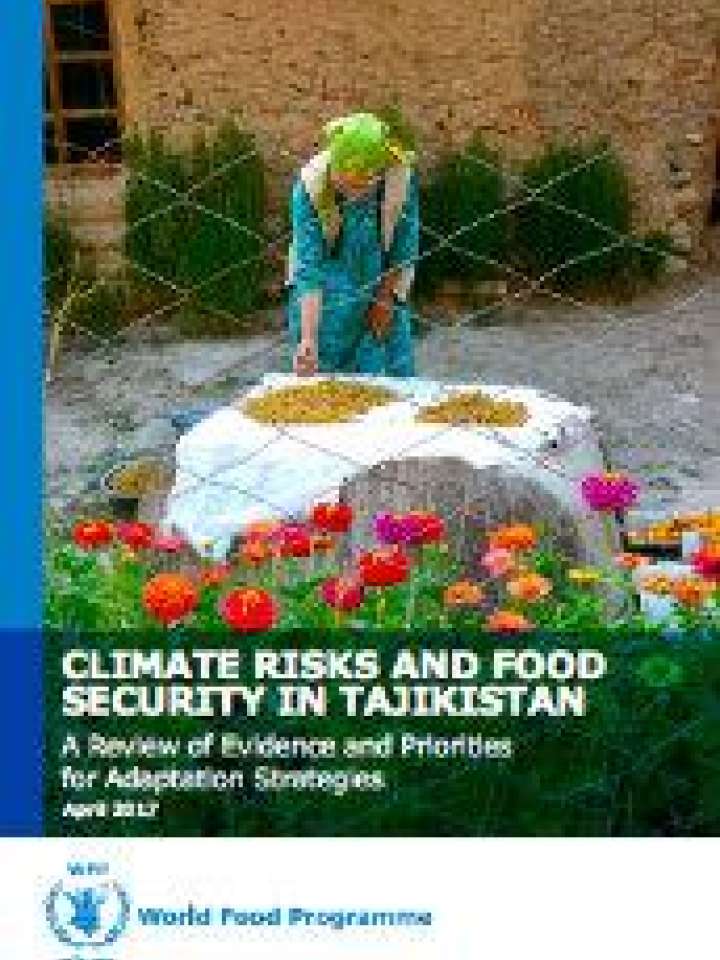Climate risks and food security in Tajikistan: a review of evidence and priorities for adaptation strategies
This document reviews some of the main existing studies, national strategies and reports related to climate impacts on food security and livelihoods in Tajikistan. It highlights the socio-economic vulnerability context and main challenges for food security as a result of climate change and related disasters. By employing a broad approach to food security, it contributes to the overall understanding of how climate change will impact not only production and availability related concerns, but also economic access and poverty links to climate change, and stability and utilization challenges.
The review highlights existing evidence carried out by partners and by WFP, with a particular focus on WFP’s Integrated Context Analysis and its subsequent tools for community consultations, the Seasonal Livelihood Programming consultation and the Community Based Participatory Planning tool. It then presents the current measures undertaken by WFP Tajikistan in addressing climate-related risks to food security linked with national priorities.
The last section of this report provides summarizing conclusions, highlighting key areas of concerns based on the presented information and gives topical suggestions on ways in which risk informed development and climate adaptation can be supported.
Explore further
